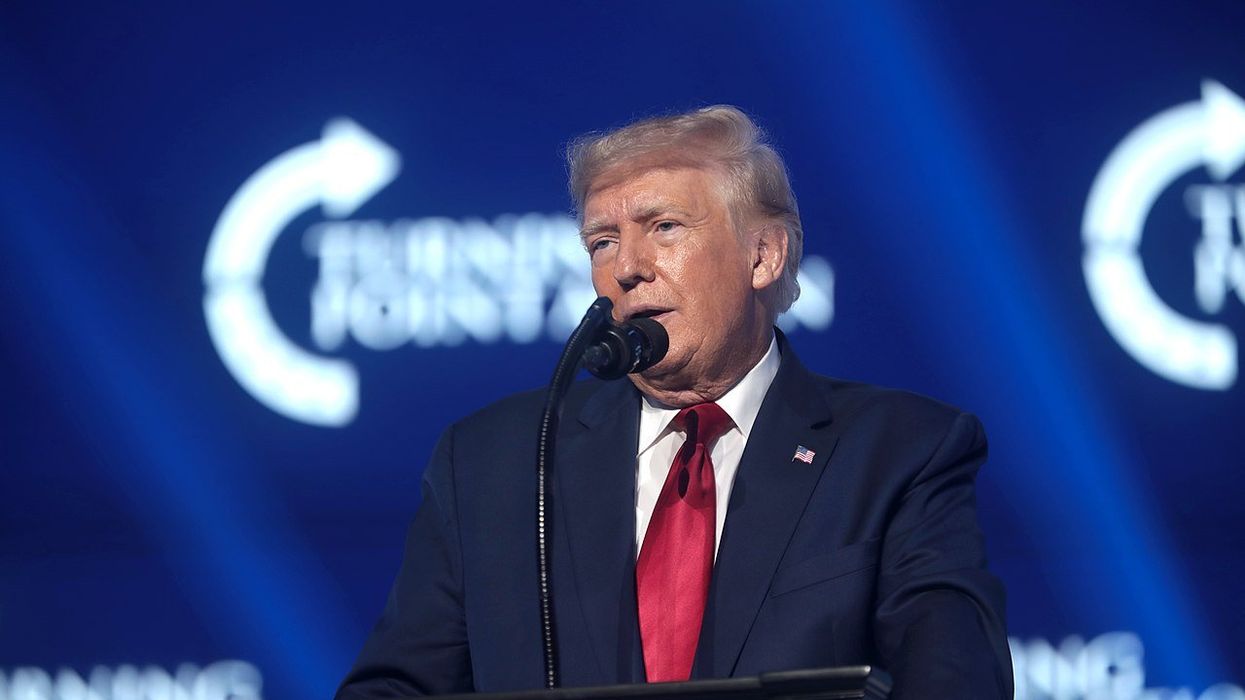Legal experts tear apart Trump’s defenses in Jan. 6 prosecution

Former President Donald Trump in Tampa, Florida in July 2022 (Gage Skidmore)
August 03, 2023 | 06:40AM ETBank
When special counsel Jack Smith announced, on Tuesday, August 1, that Donald Trump had been indicted on four criminal charges in connection with his efforts to overturn the 2020 election results, it didn't take Fox News and other right-wing media outlets long to rush to the former president's defense. Far-right pundits on Fox News and MAGA-friendly AM talk radio stations have been slamming the indictment as a partisan assault on Trump's constitutional rights, often echoing the former president's own rhetoric.
But in articles published by The Bulwark and Axios on August 3, some legal experts tear apart the talking points that Trump defenders have been reciting since the indictment was handed down.
In The Bulwark — a conservative website with a decidedly Never Trump perspective — attorney Philip Rotner notes that two of Trump's main defenses are "I really believed it" and "I relied on the advice of counsel." But Smith's prosecution, Rotner predicts, will "ultimately lay waste to those defenses."
READ MORE: Jack Smith must get inside Trump’s head to prove his guilt: report
"Most of the political arguments made by Trump's supporters in response to the indictment are just that: political, not legal, defenses," Rotner explains. "The claim that the indictment was designed to distract from 'ongoing legal troubles' of President Joe Biden's son Hunter, for instance, may have ramifications for the 2024 presidential election, but it won't mean anything in a criminal trial. The case will rise or fall on its merits, and Hunter Biden will have no role in it."
The attorney continues, "But Trump's two stock legal defenses — that he sincerely believed he had won the 2020 election and that he relied on the advice of counsel in his post-election activities — will be very much in play."
Rotner notes that the "I really believed it" defense would involve convincing jurors that he genuinely believed the 2020 election was stolen.
"If he could convince a jury that he truly believed he had won the election," the attorney argues, "some of the overt acts alleged against him, standing alone, might look less sinister. But those acts do not stand alone. Rather, they are powerful evidence of the criminal conspiracy alleged in the indictment. And while some of the overt acts alleged against Trump might look less damning if Trump could show he truly believed he won the election, others would not. Even a sincere, deeply held belief that the election had been stolen would not, for instance, give Trump license to participate in a fake-electors scheme."
READ MORE: 'Involved in every step': Why America’s mayor 'now faces a reckoning with the law'
According to Rotner, the problem with Trump's "I relied on the advice of counsel" defense is that "the attorneys on whom he might claim to have relied — Rudy Giuliani, John Eastman, Jenna Ellis, Sidney Powell — are unlikely to testify because they are either named or unnamed co-conspirators with potential criminal liability of their own."
"If any of them do testify," Rotner points out, "they risk being exposed as liars and frauds who can be torn to shreds on the witness stand. The attorneys who will testify, on the other hand, are credible professionals — many of whom, like Bill Barr and Pat Cipollone, were appointed by Trump himself — who will establish that Trump did not rely on the advice of counsel."
John Lauro, an attorney representing Trump, is claiming that the former president was merely exercising his 1st Amendment rights when he questioned the 2020 election results — not attempting a coup. But Axios' Sam Baker, in his August 1 article, stresses that Trump "is not being indicted for what he said" but because Smith alleges that his "actions amounted to a criminal conspiracy."
University of Minnesota law professor Alan Rozenshtein told Axios, " There's no First Amendment right to participate in a conspiracy…. I don't expect there to be any serious First Amendment issues here."
Former U.S. Attorney General Bill Barr, during an August 2 appearance on CNN, emphasized that Trump's 1st Amendment rights are not being questioned in Smith's case.
The conservative Barr told CNN's Kaitlin Collins, "He can say whatever he wants. He can even lie. He can even tell people that the election was stolen, when he knew better. But that does not protect you from entering into a conspiracy. All conspiracies involve speech, and all fraud involves speech. So, free speech doesn't give you the right to engage in a fraudulent conspiracy."
Find Philip Rotner's full article for The Bulwark at this link and Axios' report here.